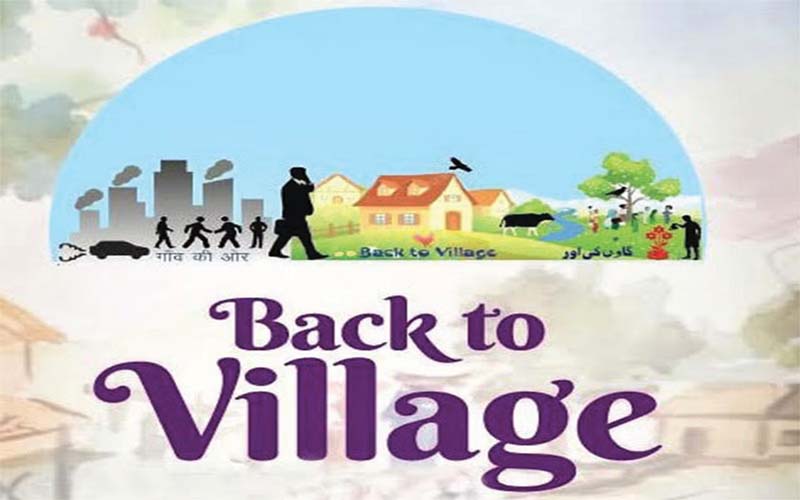Follow-up action to begin very next day
Top brass of Admn to analyze reports
Sanjeev Pargal
JAMMU, Oct 31: The Government is working on a mechanism to ensure that issues and demands raised by the people during ongoing Back to Village 4 (B2V4) programme are categorized and sent to the concerned department for addressing them. The Panchayati Raj Institutions (PRIs) will be taken into confidence and kept informed about the issues which can be addressed and which not.
“After B2V4 ends on November 3, the Government officers who toured various villages will prepare detailed notes of the issues raised by the people during their field visits and stay in the rural areas. Based on the reports, Rural Development Department and the Planning Development and Monitoring Department (PDMD) will make out detailed analysis of the demands and issues projected by the people in different rural areas,” official sources told the Excelsior.
“A detailed follow-up action will start the very next day of conclusion of B2V4 and Panchayati Raj Institutions (PRIs) including District Development Councils (DDCs), Block Development Councils (BDCs) and Panchayats will be kept fully informed,” they said.
This time, they added, the priorities are very clear. Whatever has to be delivered in the rural areas by different departments has been prioritized. Jan Abhiyan was undertaken before start of the B2V4. The administration is fully sensitive to the people’s demands, they said.
Sources said as soon as the B2V4 concludes on November 3, the Planning Development and Monitoring Department which is receiving data from the Government officers/officials visiting rural areas as part of the programme will compile a detailed report of eight days long programme. Simultaneously, the Rural Development Department will also come into action.
The report will be analyzed by top brass of the civil administration.
“There will be certain issues and demands raised by the people which may be impossible to be considered while all other demands will be forwarded to concerned departments for time-bound action and reporting to the concerned Panchayati Raj Institutions who will keep the people informed,” the sources said, adding that action will be time-bound.
The people must feel that the issues raised by them during B2V4 before the visiting officers have been adequately discussed by the administration and follow-up action has been initiated.
“It will be endeavour of the administration that most of the issues raised by the villagers during visit of the officers/officials are addressed. However, there may be certain demands and issues which the administration may find it difficult to address,” the sources said.
They added that some demands might pertain to Central Government, others to UT Government, Panchayati Raj Institutions like DDCs, BDCs, Panchayats, District Development Commissioners etc and accordingly the administration will try to ensure that the issues are addressed.
“The very purpose of B2V4 will be served if the issues and demands raised by the people during the field visits of officers are addressed properly,” they said.
As already reported, the officers visiting rural areas will be Mentor Officers for one year which will ensure that they continue liaison between the people and the concerned department for getting the demands of the people addressed.
Following announcement of the B2V4, some Panchayat representatives and other organizations had raised hue and cry that demands raised by the people during three earlier Back to Village Programmes were not addressed completely.
In view of this, the Government this time has come out with comprehensive mechanism by the administration to ensure that maximum possible issues voiced by the people before the officers are addressed.
Asserting that the B2V4 is rare initiative in Jammu and Kashmir in which almost entire administration is directly reaching out to the people in rural areas, they said this will go a long way in ensuring redressal of the grievances and addressing of the issues.


